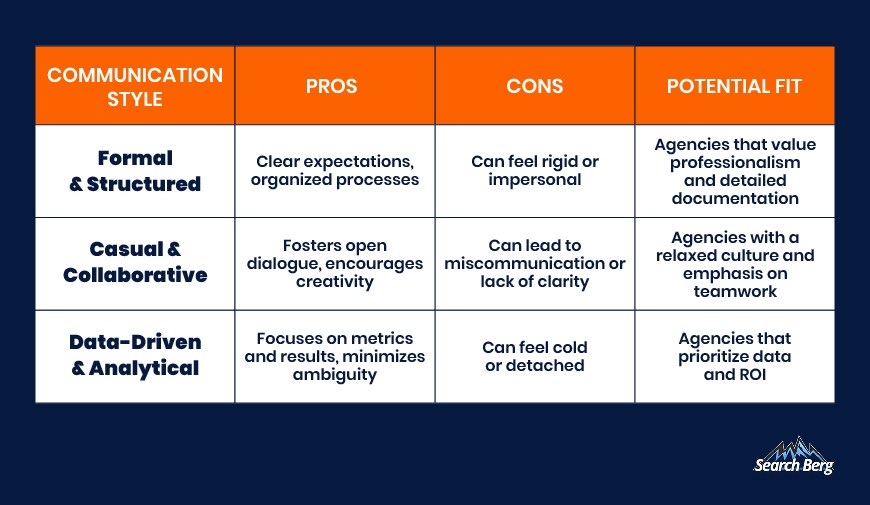How to Choose a White Label SEO Partner
Your agency is thriving, clients are rolling in, but you’re stretched thin. The demand for SEO services is skyrocketing, yet building an in-house team feels like a Herculean task. You’re caught between a rock and a hard place: expand your offerings or risk losing valuable business.
Sound familiar? It’s a common dilemma for agencies working their way through the dense digital jungle. The solution? White label SEO services. Think of this as your agency’s secret weapon: a team of seasoned SEO professionals working tirelessly behind the scenes to deliver exceptional results, all under your brand. It’s the perfect way to scale your services, boost your revenue, and keep your clients happy.
The catch is, that not all white label SEO companies are the same. Choosing the wrong partner can lead to subpar results, frustrated clients, and a tarnished reputation.
That’s where this guide comes in. We’ll walk you through the ins and outs of selecting the right white label SEO provider, ensuring a seamless, profitable, and worry-free collaboration.
Let’s begin.
1. Define Your Agency’s Needs and Goals
Before you even begin your search for a white label SEO provider, you must have a crystal-clear understanding of your agency’s unique needs and goals. Think of this as laying the foundation for a successful partnership. If you don’t know what you’re looking for, how can you expect to find it?
1.1. What SEO Services Do You Want to Offer Your Clients?
This may seem obvious, but it’s worth taking the time to really map out the specific SEO services you want to provide. Are you focused on on-page optimization, technical SEO, link building, content creation, or a combination of these? Perhaps you’re looking to specialize in a particular niche or industry.
Understanding your service offerings will help you identify white label partners with the right expertise and experience. For example, if you’re primarily focused on content marketing, you’ll want a partner with a strong team of writers and editors. On the other hand, if you’re looking to offer technical SEO audits, you’ll need a partner with in-depth knowledge of website architecture and code.
1.2. What Level of Expertise Are You Looking for in a Partner?
As we mentioned earlier, all white label SEO providers aren’t cut from the same cloth. Some may be more focused on basic SEO tasks, while others offer advanced strategies and cutting-edge techniques. Consider the level of expertise your clients require and the level of involvement you want in the SEO process.
If you’re looking for a hands-off approach, you may prefer a partner who can take full ownership of your clients’ SEO campaigns. However, if you want to maintain more control and collaborate closely with your partner, find a white label SEO agency that’s open to communication and feedback.
1.3. What is Your Budget for White Label SEO?
White label SEO can range in price depending on the provider’s experience, expertise, and the scope of services offered. You must establish a realistic budget for your agency and look for partners that offer pricing plans that align with your financial goals.
Remember, the cheapest option isn’t always the best. It’s important to balance cost with quality and ensure you’re getting value for your investment. Consider the long-term benefits of partnering with a reputable provider that can deliver consistent results.
1.4. What Are Your Expectations in Terms of Communication and Reporting?
Communication and reporting are vital components of a successful white label SEO partnership. You need to be able to stay informed about your clients’ campaigns and track their progress.
- How often do you want to receive updates?
- What level of detail do you expect in the reports?
- Do you prefer to communicate via email, phone, or video calls?
Clarifying your communication and reporting expectations upfront will help you avoid misunderstandings and ensure a smooth working relationship with your white label partner.
2. Assess Expertise and Experience

SEO isn’t for the faint of heart. It’s a complex, multifaceted discipline that demands a deep understanding of search engine algorithms, user behavior, content strategy, technical optimization, and much more.
To master this intricate terrain and deliver tangible results for your clients, you must partner with a white label SEO agency with a proven track record of success.
Think of it this way: you wouldn’t trust your health to an amateur doctor or your legal matters to an inexperienced lawyer. The same principle applies to SEO. You need a partner who understands the fundamentals and stays ahead of the curve. This is where expertise and experience come into play, forming the bedrock of a successful white label SEO partnership.
Here’s what you should look for in a white label SEO partner:
- A Team of Experienced SEO Professionals: SEO isn’t a one-person job. Look for a provider with a team of seasoned experts, each specializing in different aspects of SEO. This ensures a comprehensive and diverse approach to your client’s campaigns.
- A Deep Understanding of the Latest SEO Trends and Algorithm Updates: The SEO world moves at lightning speed. Your partner should be at the forefront of industry knowledge, staying up-to-date with the latest trends, techniques, and Google algorithm changes.
- A Portfolio of Successful Client Case Studies: Past performance is often a good indicator of future success. Ask potential partners for case studies demonstrating their ability to deliver results across various industries and niches.
- Positive Client Testimonials and Reviews: What are other agencies saying about their experience with this provider? Check online reviews and testimonials, and don’t hesitate to ask for references.
- Industry-Specific Experience: Don’t be afraid to inquire about their experience in your specific industry or niche. The more specialized their expertise, the better equipped they’ll be to understand your client’s unique challenges and opportunities. For example, an agency specializing in eCommerce SEO may not be the best fit for a client in the healthcare industry.
- Years in Business: While a newer agency can still be excellent, a provider with years of experience demonstrates stability and a proven track record. Consider companies like Search Berg, established in 2007, which bring a wealth of knowledge and expertise to the table.
- The breadth of SEO Services: SEO encompasses various disciplines, from technical optimization to content creation and link building. Ensure your potential partner offers a comprehensive suite of services that aligns with your agency’s needs and client demands. A provider like Search Berg, with expertise across all SEO services, can be a valuable asset in meeting diverse client requirements.
- Certifications and Awards: While not the be-all and end-all, industry certifications and awards can indicate a commitment to excellence and ongoing professional development.
- Thought Leadership: Does the provider actively contribute to the SEO community through blogs, webinars, or speaking engagements? Thought leadership demonstrates a passion for the industry and a desire to share knowledge and insights.
Remember, choosing a white label SEO provider isn’t just a matter of outsourcing tasks; it’s about finding an extension of your team. A partner with the right expertise and experience can be a game-changer for your agency, helping you deliver exceptional results, scale your services, and build a reputation for SEO excellence.
Take the time to thoroughly vet potential partners and choose one that aligns with your agency’s vision and values.
3. Prioritize Transparency and Communication

In any partnership, especially one as intricate as white label SEO, open and honest communication is non-negotiable. It’s the lifeblood that nourishes the relationship, fostering trust, understanding, and ultimately, success. Think of it like a well-oiled machine: without clear communication, the gears grind, progress stalls, and frustration mounts.
When evaluating potential white label SEO providers, pay meticulous attention to their communication style and commitment to transparency.
Here’s a breakdown of key factors to consider:
3.1. Responsiveness & Professionalism
From the very first interaction, pay close attention to how responsive and professional the provider is. Do they respond to your inquiries promptly, demonstrating a genuine interest in your needs? Or do they leave you hanging, creating an initial sense of frustration and doubt?
Remember, a sluggish response can be a red flag, signaling a lack of prioritization or potential organizational issues.
The tone and clarity of their communication are equally important. Do they speak your language, explaining complex SEO concepts in a way that’s easy to understand? Or do they bombard you with jargon and technicalities, leaving you feeling overwhelmed and confused?
A good white label SEO company will value clear, concise, and courteous communication, ensuring that you’re always on the same page.
3.2. Strategic Clarity
A successful white label SEO partnership is built on a foundation of shared understanding and strategic alignment.
When evaluating potential providers, dive deeper into their approach. Are they willing to provide detailed explanations of their proposed strategies and tactics, or do they keep their cards close to their chest? A transparent partner will be forthcoming about their methodology, outlining the specific steps they’ll take to achieve your clients’ goals.
Regular reporting and updates on campaign progress are also essential. You should expect clear, concise reports that highlight key metrics, achievements, and areas for improvement. This allows you to track the impact of their efforts and demonstrate the value of your SEO services to your clients.
SEO isn’t a one-size-fits-all solution. A good partner will be flexible and adaptable, willing to adjust their strategies based on your clients’ unique needs and the evolving SEO terrain. They should be open to feedback and eager to collaborate with you to achieve the best possible outcomes.
3.3. Proactive Communication
Beyond responsiveness and strategic clarity, look for a white label SEO agency that takes a proactive approach to communication. This means going beyond simply answering your questions and providing reports.
A proactive partner will:
- Initiate Regular Check-Ins: Even when things are running smoothly, they’ll touch base to discuss progress, address any concerns, and explore new opportunities.
- Offer Solutions, Not Just Problems: When challenges arise, they’ll proactively communicate the issue, present potential solutions, and collaborate with you to find the best path forward.
- Provide Educational Resources: They’ll invest in your growth by offering training materials, webinars, or workshops to help you and your team stay abreast of the latest SEO trends and best practices.
- Set Clear Expectations for Client Communication: Will they be interacting directly with your clients, or will you be the main point of contact? Establishing clear boundaries and communication protocols upfront is crucial to avoid confusion and maintain a consistent brand experience for your clients.
3.4. Red Flags to Watch Out for
While most white label SEO providers are reputable and trustworthy, there are a few red flags to watch out for:
- Vague or Evasive Answers: If a provider is hesitant to answer your questions or provides vague responses, it could be a sign that they’re hiding something or lack confidence in their abilities.
- Over promising & Under delivering: Beware of providers that make unrealistic promises or guarantee rankings. SEO is a long-term game, and no one can guarantee top rankings overnight.
- Lack of Communication: If you find yourself constantly chasing after your partner for updates or struggling to get a response, it’s a major red flag.
3.5. The Importance of Communication Styles
Effective business communication isn’t just about what’s said, it’s also about how it’s said. Different agencies have different communication styles, so it’s important to find a partner that meshes well with your team.
Here’s a quick comparison to help you visualize different communication styles and their potential impact on your partnership:

4. Evaluate Reporting and Analytics Capabilities
We sound like a broken record every time we say this, but data really is king. Without concrete metrics and insights, it’s impossible to gauge the effectiveness of your campaigns, identify areas for improvement, or justify your efforts to clients.
A white label SEO provider with robust reporting and analytics capabilities is non-negotiable.
4.1. The Need for Depth and Insight
While it’s tempting to get caught up in vanity metrics like website traffic or social media followers, a truly effective SEO partner goes beyond surface-level data. They provide in-depth reports that delve into the nitty-gritty of your campaigns, offering a comprehensive understanding of what’s working, what’s not, and why.
4.2. Key Metrics to Look For
- Rankings: How are your clients’ websites ranking for their target keywords? Are they moving up in the search results or stagnating? A good white label SEO report will provide detailed ranking data, including historical trends and competitor analysis.
- Organic Traffic: Is your SEO strategy driving more qualified visitors to your clients’ websites? A robust report will track organic traffic over time, highlighting sources, landing pages, and user behavior.
- Conversions: Are those website visitors taking the desired actions, e.g., making a purchase, filling out a form, or subscribing to a newsletter? A comprehensive report will track conversions and attribute them to specific SEO efforts.
- Backlinks: Are authoritative websites linking to your clients’ content? A good report will provide insights into the quality and quantity of backlinks, helping you identify opportunities for further link building.
- Technical SEO: Is your clients’ website optimized for search engines? A thorough report will include technical audits and recommendations to improve site speed, mobile-friendliness, and overall user experience.
4.3. Beyond Numbers
Raw data alone isn’t enough. Your white label SEO company should be able to translate those numbers into actionable insights and recommendations.
Think of it this way: if a particular blog is attracting a flood of visitors but few are converting into leads or customers, your white label SEO team should be able to diagnose the problem. Perhaps the content isn’t resonating with the target audience, the call-to-action is weak, or the landing page experience is subpar. A skilled provider will delve deeper, analyzing user behavior, conducting A/B tests, and offering concrete recommendations to improve conversions.
This ability to go beyond the numbers and provide actionable insights is what separates good white label SEO partners from great ones. They don’t just tell you what’s happening; they tell you why it’s happening and what you can do about it.
Look for a partner who:
- Asks the Right Questions: A good SEO partner will be curious, seeking to understand your clients’ business goals, target audience, and competitive landscape. This information will help them to tailor their strategies and recommendations to specific needs.
- Connects the Dots: They’ll be able to identify patterns and trends in the data, connecting the dots between various metrics to paint a holistic picture of your clients’ SEO performance.
- Offers Clear, Actionable Recommendations: Their insights won’t be vague or generic. They’ll provide specific, actionable recommendations that you can implement to improve your clients’ rankings, traffic, and conversions.
Remember, data without interpretation is like a treasure map without the “X” marking the spot.
4.4. Customization and Visualization
Data overload can be overwhelming. A good white label SEO partner will offer customized dashboards and visualizations that make it easy to track progress and understand key metrics at a glance. This will help you identify trends, spot potential issues, and communicate results effectively to your clients.
Here are some examples of effective reporting:
- Monthly Performance Reports: These provide a comprehensive overview of campaign progress, including key metrics, achievements, and areas for improvement.
- Custom Dashboards: These offer a visual representation of data, making it easier to track trends and identify patterns.
- Ad-Hoc Reports: These can be generated on demand to address specific questions or concerns.
5. Consider Scalability and Flexibility
In the buzzing arena of digital marketing, change is the only constant. Your agency’s needs today might look vastly different a year or even six months from now.
As you grow and evolve, so too will your SEO requirements.
Therefore, you must choose a white label SEO company that can scale and adapt alongside you, ensuring a long-term, mutually beneficial relationship.
5.1. Handling Increased Client Volume
Let’s say your agency lands a major new client with a sprawling website and ambitious SEO goals. Can your white label partner handle the increased workload without compromising on quality or turnaround time?
Choose a provider with the capacity and resources to scale their services as your client base expands.
Consider asking potential partners about their current client load, their team size, and their processes for managing multiple projects simultaneously. A company that’s transparent about its capacity and demonstrates a willingness to invest in additional resources as needed is a good sign.
5.2. Adapting to Different Industries and Niches
SEO isn’t a one-size-fits-all solution. It’s more like a bespoke suit, tailored to the unique contours of each industry and niche. The strategies that work wonders for an eCommerce giant might fall flat for a local healthcare provider.
Keyword research, content creation, link-building tactics… all these elements need to be fine-tuned to resonate with the target audience and comply with industry-specific regulations.
When evaluating potential white label SEO providers, dive deep into their experience working with clients in your target industries. Don’t just settle for vague assurances; ask for concrete examples of successful campaigns and how they adapted their strategies to overcome industry-specific challenges.
A provider with a diverse portfolio and a proven ability to tailor their approach to different niches is a valuable asset. They understand that SEO isn’t just about rankings; it’s about achieving meaningful business outcomes for your clients, regardless of their industry.
Ask tough questions and ensure your potential partner has the versatility and expertise to deliver results across a wide range of sectors.
5.3. Flexible Pricing Plans
As your agency grows, your budget for white label SEO services will likely change. Find a company that offers flexible pricing plans that can accommodate your evolving needs.
Be wary of providers that lock you into long-term contracts with rigid pricing structures. Ideally, you want a partner that offers flexibility and transparency in their pricing, allowing you to scale your services as needed without breaking the bank.
6. Assess Client Onboarding and Support

A smooth onboarding process and ongoing support are vital components of a successful white label SEO partnership. They set the tone for the entire collaboration, ensuring a seamless experience for both your agency and your clients.
Think of it as the welcoming committee and the support system all rolled into one: crucial for building a strong foundation and fostering a long-term, mutually beneficial relationship.
6.1. The Onboarding Experience
The client onboarding process is the first real interaction your clients will have with your white label SEO partner. It’s an opportunity to make a positive impression and demonstrate your agency’s commitment to providing exceptional service.
A well-structured onboarding process should include:
- A clear and concise welcome package outlining the partnership and expectations.
- A dedicated account manager or point of contact for seamless communication.
- A thorough discovery process to understand the client’s business, goals, and target audience.
- A detailed project plan outlining the scope of work, timelines, and deliverables.
- Regular check-ins and progress updates to keep everyone informed and aligned.
6.2. Ongoing Support
Onboarding is just the beginning. Ongoing support is essential for ensuring that your clients’ SEO campaigns stay on track and deliver results.
A reliable white label SEO partner will provide:
- Technical Support: Promptly addressing any technical issues that arise, e.g., website errors or indexing problems.
- Strategic Guidance: Offering ongoing consultations and recommendations to optimize campaigns and adapt to changing market conditions.
- Performance Monitoring: Continuously tracking and analyzing key metrics to identify opportunities for improvement and ensure campaigns are performing optimally.
- Transparent Communication: Providing regular updates and reports on campaign progress, fostering open and honest communication at all times.
7. Check for White Label Branding Options
Seamless integration with your agency’s brand is paramount. Your clients should never feel like they’re working with multiple vendors; they should experience a unified brand identity, from the initial onboarding process to the final reporting deliverables.
This is where white label branding options come into play, allowing you to maintain control over your agency’s image and reputation.
7.1. White Label Reporting and Dashboards
Reporting is a critical touchpoint in the client relationship. It’s an opportunity to showcase your agency’s expertise, demonstrate the value of your SEO services, and build trust with your clients.
A white label SEO provider should offer customizable reporting and dashboards that seamlessly integrate with your agency’s branding. This goes beyond simply slapping your logo on a generic report; it’s about creating a polished, professional presentation that reflects your agency’s unique style and values.
Here are some aspects of white label reporting and dashboards to consider:
- Complete Removal of the Provider’s Branding: The reports should be free of any logos, watermarks, or mentions of the white label provider, ensuring that your clients see only your agency’s brand.
- Customization with Your Agency’s Branding Elements: You should have the flexibility to add your agency’s logo, color scheme, fonts, and other visual elements to the reports, creating a cohesive and visually appealing presentation.
- Tailored Report Content: The ability to customize the report content is crucial. You should be able to choose which metrics and insights to highlight, ensuring the reports are relevant and meaningful to your clients.
For instance, if your agency specializes in eCommerce SEO, you might want to focus on metrics like organic traffic, conversion rates, and revenue generated from organic search. On the other hand, if you work primarily with local businesses, you might prioritize local search rankings, Google Business Profile (formerly known as Google My Business) insights, and foot traffic data.
7.2. Client-Facing Communication Materials
Beyond reports, your white label SEO partner should also be able to provide client-facing communication materials that align with your brand voice and messaging. This ensures a consistent and professional experience for your clients throughout their SEO journey.
Consider these examples of client-facing communication materials:
- Onboarding Emails: Welcoming new clients and outlining the next steps in the SEO process.
- Progress Update Emails: Keeping clients informed about campaign performance and upcoming milestones.
- Performance Reports: Providing in-depth analysis of SEO results and recommendations for future optimization.
- Proposal Templates: Outline your SEO services and pricing in a clear and compelling manner.
- Case Studies and Testimonials: Showcasing your agency’s success stories (with the white label partner’s work subtly woven in).
The key is to ensure that all communication materials reflect your agency’s unique brand voice and personality. Whether your tone is formal and authoritative or friendly and approachable, your white label SEO partner should be able to adapt their communication style to match.
8. Review Contract Terms and Pricing

While the excitement of finding a seemingly perfect white label SEO company can be intoxicating, it’s important to take a step back and meticulously review the contract terms and pricing structure before sealing the deal.
Remember, the devil is often in the details, and a seemingly minor oversight can have significant consequences down the line.
Think of the contract as the blueprint for your partnership. It outlines the scope of services, deliverables, payment terms, and other crucial aspects of the collaboration. A thorough review ensures that both parties are on the same page, minimizing the risk of misunderstandings or disputes in the future.
Start by carefully examining the services included in the package.
- Does it encompass all the SEO services you intend to offer your clients?
- Are there any limitations or exclusions that might impact your ability to deliver comprehensive solutions?
Clarity on this front is essential to avoid any unpleasant surprises down the road.
Next, scrutinize the pricing structure.
- Is it transparent and easy to understand?
- Are there any hidden fees or additional charges that might catch you off guard?
Some providers may have a base fee with add-ons for specific services or deliverables. Others may have tiered pricing based on the number of clients or the scope of work. Ensure you have a clear understanding of the cost implications and how they might affect your agency’s profitability.
Always review the cancellation policy. Life happens, and circumstances can change. What if you need to terminate the partnership for any reason? Are there any penalties or early termination fees? Understanding the cancellation terms upfront can save you from headaches and financial losses in the future.
8.1. Additional Contractual Considerations
- Intellectual Property: Who owns the work produced during the partnership? Ensure the contract clearly outlines ownership rights and usage restrictions.
- Confidentiality: Will the provider handle your clients’ sensitive information with care? Look for clauses that address data security and confidentiality.
- Liability: What happens if something goes wrong? The contract should outline each party’s liability in case of errors, omissions, or unforeseen circumstances.
- Dispute Resolution: How will disagreements be handled? The contract should include a clear process for resolving disputes, whether through mediation or arbitration.
8.2. Pro Tip
Feel free to seek legal counsel to review the contract and ensure it protects your agency’s interests. It’s a small investment that can save you from significant headaches and financial losses in the long run.
A well-crafted contract isn’t just a legal document; it’s a symbol of trust and commitment between your agency and your white label SEO management team. By taking the time to carefully review the terms and pricing, you’re laying the groundwork for a successful and mutually beneficial collaboration.
9. Seek References and Testimonials
In the age of online reviews and social media, word-of-mouth marketing holds way more sway than ever before. When choosing a white label SEO partner, don’t rely solely on their sales pitch or marketing materials. Seek out references and testimonials from other agencies they’ve worked with.
It’s like asking for recommendations before hiring a contractor or choosing a restaurant; you want to hear from people who have firsthand experience with the provider.
Ask potential partners for a list of references, including contact information for agencies they’ve collaborated with. There’s no harm in reaching out to these references and inquiring about their experience. Ask specific questions about the quality of the provider’s services, communication style, and ability to meet deadlines. Also, ask the references about their overall satisfaction with the partnership. These conversations can provide invaluable insights into the provider’s strengths, weaknesses, and overall suitability for your agency.
In addition to direct references, explore online reviews and testimonials on platforms like Clutch and Trustpilot. These platforms offer a wealth of unbiased feedback from real clients, giving you a glimpse into the provider’s reputation and track record. Pay attention to both positive and negative reviews, looking for patterns and recurring themes. Are clients consistently praising the provider’s expertise and communication? Or are there complaints about missed deadlines or lackluster results?
For example, Search Berg boasts a stellar reputation on Clutch and Trustpilot, with numerous positive reviews highlighting our expertise, professionalism, and commitment to client success. These testimonials can provide valuable reassurance and help you make an informed decision.
Furthermore, consider reaching out to your professional network and asking for recommendations. Perhaps a colleague or industry peer has had a positive experience with a white label SEO provider they can recommend. Personal recommendations can be particularly valuable, as they come from people you trust and whose opinions you value.
9.1. Key Questions to Ask References
- How long have you been working with this provider, and how has the relationship evolved? This helps gauge the stability and longevity of their partnerships.
- Can you describe the specific SEO services they have provided for your agency, and how have those services impacted your clients’ results? This delves into the practical application of their expertise and its tangible impact.
- On a scale of 1 to 10, how would you rate the overall quality of their work, and what specific aspects stand out to you? This provides a quantitative and qualitative assessment of their performance.
- How would you characterize their communication style and the effectiveness of their reporting? Do they keep you informed and provide actionable insights? This goes beyond mere responsiveness to evaluate the clarity and value of their communication.
- In your experience, have they been able to consistently meet your agency’s needs and expectations? If not, can you provide specific examples? This question uncovers any potential gaps in their service delivery or areas where they may fall short.
- Would you recommend them to other agencies seeking a white label SEO partner? Why or why not? This final question encapsulates the overall sentiment and provides a clear recommendation (or warning).
The goal of these conversations is to gather honest, unbiased feedback from agencies that have firsthand experience working with the provider. It’s an opportunity to glean insights that might not be readily apparent from marketing materials or online reviews. So, don’t be afraid to ask probing questions and get a sense of the provider’s suitability for your agency’s needs.
10. Trust Your Gut Feeling

While data, due diligence, and references are all critical components of choosing a white label SEO company, there’s one intangible factor that shouldn’t be overlooked: your gut feeling.
Throughout the evaluation process, pay attention to your instincts.
- Do you feel comfortable communicating with the provider?
- Do you trust their expertise and judgment?
- Do you believe they’ll be a good fit for your agency’s culture and values?
Sometimes, despite all the positive indicators, something just doesn’t feel right. Perhaps there’s a lack of chemistry during your conversations, or you sense a disconnect in values or work ethic. It’s important to trust your intuition and acknowledge any red flags, even if they’re subtle.
Remember, you’re not just choosing a service provider, you’re choosing a partner. You’ll be working closely with this team, sharing ideas, collaborating on strategies, and relying on them to deliver results for your clients. A strong partnership is built on trust, mutual respect, and a shared vision. If your gut feeling tells you something is amiss, it’s okay to walk away and continue your search.
On the other hand, if you feel a sense of excitement, confidence, and alignment with a particular provider, that’s a positive sign. It suggests a potential for a fruitful and fulfilling partnership.
Trusting your gut feeling doesn’t mean ignoring data or neglecting due diligence. It simply means acknowledging the importance of intuition and personal connection in the decision-making process.
After all, a successful white label SEO partnership isn’t just about numbers and metrics, it’s also about building a relationship based on trust, collaboration, and shared goals.
Find the Right Fit for Your Business
Choosing the right white label SEO partner is a pivotal decision that can significantly impact your agency’s growth and success. It requires careful consideration, a discerning eye for detail, and a willingness to ask difficult questions.
But with the right guidance and a clear understanding of your agency’s unique needs, you can forge a partnership that’s built to last.
If you’re ready to take your agency’s SEO services to the next level, consider partnering with Search Berg. With a legacy of excellence dating back to 2007, a team of seasoned SEO professionals, and expertise across all facets of SEO, we’re committed to helping agencies like yours thrive in the digital arena.
We prioritize transparency, communication, and data-driven insights, offering flexible solutions that scale with your needs. Our white label branding options ensure seamless integration with your agency’s identity, while our dedication to client onboarding and support guarantees a smooth and successful partnership.
Why settle for mediocrity when excellence is within reach?Start exploring our white label SEO services to understand what we bring to the table and how we can help your business get ahead.
The ball is in your court!
Frequently Asked Questions
1. What is White Label SEO?
White label SEO is a business model where an agency outsources SEO services to a third-party provider.
The provider then performs the SEO work on behalf of the agency, but the agency retains the client relationship and branding. It’s like having a team of expert SEO professionals working behind the scenes, but your clients only see your agency’s name on the deliverables.
2. How Much Does White Label SEO Cost?
The cost of white label SEO can vary significantly depending on the provider, the scope of services offered, and your agency’s specific needs.
Some providers offer tiered pricing based on the number of clients or the level of service required. Others offer custom packages tailored to your specific needs. It’s important to compare pricing structures and ensure the value provided aligns with your budget and expectations.
3. What Are Some Examples of White Label SEO?
White label SEO can encompass a wide range of activities, including:
- Keyword Research and Analysis
- On-Page Optimization
- Technical SEO Audits and Fixes
- Link Building and Outreach
- Content Creation and Optimization
- Local SEO
- Reporting and Analytics
4. Who Are the Best White Label SEO Providers?
The “best” white label SEO provider will depend on your agency’s specific needs and goals. However, several reputable companies consistently deliver high-quality services and exceptional client support. Check out our blog on the top 10 white label SEO companies for a detailed comparison and insights to help you make an informed decision.
5. What is the Difference Between White Label and Black Label SEO?
White label SEO refers to ethical, “above-board” SEO practices that adhere to search engine guidelines. It focuses on creating high-quality content, building natural backlinks, and optimizing websites for both users and search engines.
On the other hand, black label SEO employs manipulative tactics that violate search engine guidelines, e.g., keyword stuffing, link farming, and cloaking. These practices can lead to penalties and long-term damage to your clients’ websites and your agency’s reputation.
6. What Are Some Examples of White Label Products or Services Beyond SEO?
White labeling isn’t limited to SEO; it’s a common practice across various industries.
Some other examples of white label products and services include:
- Web Design and Development
- Social Media Marketing
- PPC Advertising
- Email Marketing
- Software Development
7. Is White Labeling Illegal?
No, white labeling is perfectly legal and a widely accepted practice in the business world. It allows agencies to expand their service offerings without the need to develop expertise in every area.
However, it’s important to choose a reputable white label SEO company that employs ethical and sustainable practices to ensure the long-term success of your clients’ campaigns.
Ready to Skyrocket Your Agency's Growth with White Label SEO?
Partner with Search Berg and let us power your clients’ SEO, all under your brand. No extra hiring, no hassle; just expert results you can trust. Claim your free consultation now and start delivering premium SEO services while focusing on what you do best!
No spam, just expert advice!














